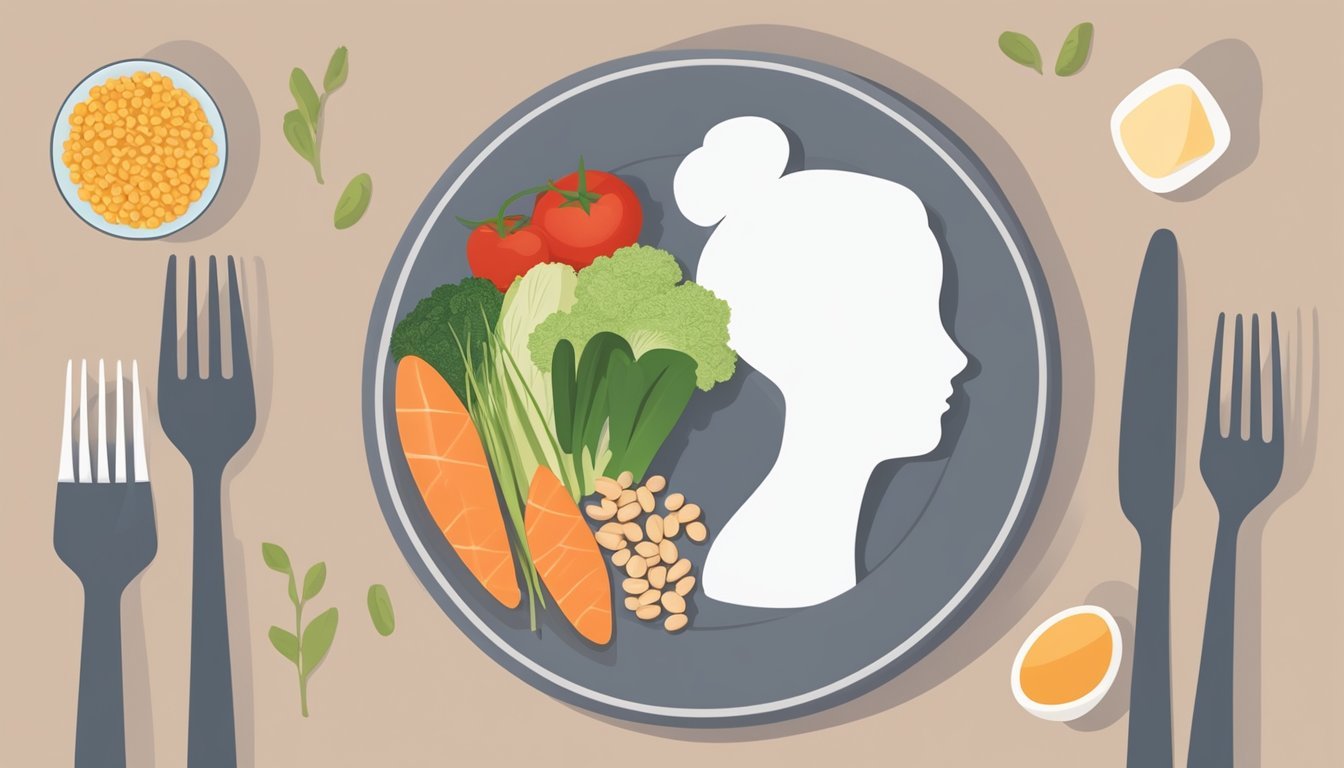Is It Safe to Follow the Warrior Diet While Pregnant?
Understanding Nutritional Needs
The Warrior Diet, a regimen that cycles extended periods of fasting with short windows of overeating, has gained attention in the wellness community as a weight management and lifestyle practice. However, its safety during pregnancy is a subject of concern. The diet's foundational principle is to emulate the eating patterns of ancient warriors, who reputedly ate little during the day and feasted at night. This form of intermittent fasting flips the traditional paradigm of frequent meals, focusing instead on a 20-hour fasting window followed by a 4-hour eating period.
Pregnancy demands careful consideration of nutritional intake to support both the mother's and fetus's health. The Warrior Diet's periods of under-eating, which may include small portions of raw fruits and vegetables, could conflict with the nutritional and caloric needs during pregnancy. Skepticism arises regarding whether such an eating pattern can provide the necessary sustenance without compromising maternal and fetal well-being.
Healthcare professionals typically emphasize the importance of balanced meals and adequate calorie intake throughout pregnancy. Given the restrictive nature of the Warrior Diet, its compatibility with pregnancy is questionable. Pregnant women have unique dietary requirements, and deviations from recommended nutritional guidelines can carry risks. It is crucial to consult with healthcare providers before adopting any diet during pregnancy to ensure safety and proper nutrition.
Understanding the Warrior Diet
The Warrior Diet incorporates a strict eating pattern based on intermittent fasting principles, emphasizing a prolonged fasting period of 20 hours, followed by a 4-hour eating window, originally inspired by the diet of ancient warriors.
Origins and Principles
The Warrior Diet was created by Ori Hofmekler in the early 2000s. It stems from the supposed eating habits and rigorous lifestyle of ancient warrior societies, as well as Hofmekler's own experiences in the Israeli Special Forces. This diet operates on the premise that the human body thrives under stress, such as the physical stress of fasting and exercising, followed by refeeding and recovery. It consists of a cycle of undereating during the day and overeating at night.
Typical Daily Eating Pattern
Adhering to the Warrior Diet involves a 20-hour fasting period, where one is allowed to consume small amounts of raw fruits and vegetables, and occasionally, some protein in the form of clear broth or dairy. This phase is often referred to as the undereating phase. Following this is the 4-hour eating window, commonly known as the overeating phase, where one can have a large meal ideally consisting of whole, nutrient-dense foods. This eating pattern is divided into three phases: a detox phase, a high-fat phase, and a high-carb phase.
Comparison with Other Intermittent Fasting Methods
The Warrior Diet differs from other intermittent fasting methods primarily in the length and structure of the fasting period. For example, the popular 16:8 method involves fasting for 16 hours and eating during an 8-hour window, offering a less extreme fasting experience compared to the Warrior Diet's 20-hour fasting period. Moreover, the Warrior Diet's emphasis on a single, substantial meal significantly contrasts with other intermittent fasting methods allowing multiple small meals within their respective eating windows.
Nutritional Needs During Pregnancy
During pregnancy, a woman's body requires additional calories and nutrients to support the growth and development of the fetus, as well as to maintain her own health. Careful attention to diet can help ensure these needs are met.
Caloric and Nutrient Requirements
The caloric intake for pregnant women typically needs to increase to support fetal growth and the mother’s metabolism. The amount of extra calories needed varies, but the general recommendation is an additional:
340 calories per day during the second trimester
450 calories per day during the third trimester
Nutrients play a crucial role in fetal development and maternal health. Key nutrients include:
Folic Acid: Essential for fetal growth, especially for the development of the neural tube. It is recommended that pregnant women consume 600 micrograms (mcg) daily.
Iron: Important for the production of hemoglobin in red blood cells to prevent anemia. A daily intake of 27 milligrams (mg) is advised.
Protein: Supports fetal tissue and brain growth and helps the uterus and breasts expand. The typical recommendation is 75-100 grams per day.
Calcium: Crucial for building fetal bones and teeth, also maintaining maternal bone health. Women should aim for 1,000 mg per day.
Vitamins: Vitamin D, C, A, and B12, among others, support various aspects of development and maternal health.
A table of nutritional guidelines for pregnant women:
Nutrient Recommended Daily Amount Folic Acid 600 mcg Iron 27 mg Protein 75-100 g Calcium 1,000 mg Vitamins Varies by vitamin type
Common Nutritional Concerns
Pregnant women often face nutritional concerns that require attention:
Deficiency in key nutrients such as folic acid, iron, or calcium can lead to complications including birth defects and preterm labor.
Over-nutrition, consuming too many calories, or excessive weight gain can increase the risk of gestational diabetes and pre-eclampsia.
Sufficient and balanced intake of vitamins and minerals is crucial, as many vitamins obtained through diet or prenatal vitamins are needed in higher amounts during pregnancy. For example, insufficient vitamin D can affect bone health, while too little vitamin C can lead to problems with tissue repair.
It is important to monitor iron levels to prevent anemia, characterized by fatigue and increased susceptibility to infections.
Incorporating a variety of food sources, along with prenatal vitamins when necessary, can help manage these concerns effectively.
Potential Risks and Benefits of the Warrior Diet During Pregnancy
Pregnancy necessitates a careful balance of nutrition and health for both the mother and the developing fetus. The Warrior Diet, with its unique fasting and feeding phases, poses specific considerations in this delicate phase.
Effects on Mother's Health
The Warrior Diet involves a prolonged fasting period of approximately 20 hours each day, followed by a 4-hour eating window. During pregnancy, consistent energy intake is crucial. Adhering to such an intense fasting regimen may lead to fatigue and inadequate calorie consumption, disrupting the mother's energy balance. This could further impact blood sugar regulation, with potential fluctuations beyond the normal range—something pregnant individuals must keenly manage.
Nutritionally, the limited eating window might impede the intake of enough nutrient-dense foods, potentially leading to deficiencies. For example, while the diet encourages raw fruits and vegetables during the detox phase, there might be a risk of not consuming sufficient quantities of essential nutrients such as folate, calcium, iron, and fiber, which are imperative during pregnancy.
On the upside, if carefully managed, the inclusion of whole foods and avoidance of processed items may contribute to reduced inflammation and removal of toxins from the body. In doing so, mothers may benefit from enhanced overall health if the diet is well-designed to meet their increased nutritional needs during pregnancy.
Benefits of the Warrior Diet Potential Risks to Mother's Health Reduction of inflammation Inadequate calorie consumption Enhanced detoxification Nutrient deficiencies Stabilized blood sugar levels Increased tiredness and fatigue
Implications for Fetal Development
Fetal development is extremely sensitive to the nutritional environment provided by the mother. The fasting component of the Warrior Diet can be concerning, as it may impose periods of nutritional scarcity. Essential nutrients required for fetal growth such as proteins, fats, vitamins, and minerals must be supplied consistently; hence, long fasting periods can be problematic.
Scientific consensus maintains that a well-rounded, balanced diet is best for fetal development. Any restrictive diet or one that introduces the potential for nutritional insufficiency should be approached with caution. The intermittent nature of the Warrior Diet could hinder the constant provision of energy and nutrients necessary for optimal fetal development.
Moreover, the fluctuations in blood sugar and energy levels experienced by the mother may translate to the fetus and impact its growth. It is critical for expecting mothers to sustain balanced blood sugar levels to foster a stable growth environment for their unborn child.
Nutritional Needs for Fetal Development Concerns with the Warrior Diet Consistent energy supply Potential for irregular feeding patterns Constant nutrient provision Risk of insufficient nutrient intake Stable blood sugar levels Possible blood sugar fluctuations
Expecting mothers should consult healthcare providers before undertaking any diet, particularly ones like the Warrior Diet, which significantly deviates from conventional eating patterns. It is vital for any diet during pregnancy to be tailored individually, taking into account personal health status and the baby's developmental needs.
Warrior Diet Meal Composition
The composition of meals in the Warrior Diet focuses on specific food groups that align with fasting and feasting periods. One must understand which foods are encouraged, as well as those to avoid, to adhere to this diet effectively.
Recommended Foods
Proteins:
Dairy Products: One may incorporate sources like Greek yogurt.
Eggs: A staple for providing high-quality protein.
Nuts and Seeds: Almonds, walnuts, flaxseeds, and chia seeds are suitable options for their healthy fats and protein.
Fruits and Vegetables:
Fruits: Emphasis on raw fruits such as apples, berries, and citrus during the undereating phase.
Vegetables: Predominantly raw and include a variety such as spinach, kale, and carrots.
Whole Grains and Beans:
Grains: Whole grains like brown rice, quinoa, and barley.
Beans: All types of legumes are encouraged for their protein and fiber content.
Unprocessed Foods:
The diet prioritizes foods in their natural or minimally processed state.
Foods to Avoid
Processed Foods:
Highly processed foods such as sugary snacks, fast food, and refined bread are discouraged.
Sugars and Sweeteners:
Avoid added sugars and artificial sweeteners that may disrupt the fasting phase.
Certain Grains:
Limit intake of refined grains that lack nutritional value.
Protein-Rich Animal Flesh:
Consumption of meat, poultry, or fish is typically reserved for the overeating window and is not recommended during the fasting period.
Adaptations for Pregnancy
During pregnancy, the Warrior Diet requires careful adjustments to ensure the health and well-being of both mother and child. These modifications include tailoring the fasting phases to accommodate increased nutritional needs and focusing on the intake of essential nutrients vital for fetal development.
Modifying Fasting Phases
Pregnant individuals should consider altering the Warrior Diet's traditional fasting period. Instead of extended fasting, they can implement a more flexible schedule with a shortened Eating Window that still includes light eating with emphasis on hydration and maintaining stable blood sugar levels. Pregnant women are advised to eat smaller, more frequent meals, consisting of:
Fruits and Vegetables: Crucial for vitamins and fiber.
Whole Grains: Important for sustained energy and fiber.
Legumes: A good source of protein and iron.
Rather than strict fasting, pregnant women may opt for a modified approach:
Fasting Phase Recommended Intake Morning Light snacks such as fruit pieces or vegetable sticks Early Afternoon A small portion of whole grains or legumes Late Afternoon Hydration and small, nutrient-rich meals or snacks
Incorporating Pregnancy-Specific Nutrients
Essential Nutrients must be prioritized to support fetal growth and maternal health. Key components such as folic acid, iron, calcium, and omega-3 fatty acids shouldn't be compromised by a limited diet. Pregnant women following the Warrior Diet should be particularly mindful to include:
Folic Acid: Found in leafy greens, citrus fruits, and fortified foods.
Iron: Required for blood production, available in legumes and fortified cereals.
Calcium: Necessary for bone development, available in dairy products and fortified plant milks.
Omega-3 Fatty Acids: Essential for brain development, available in certain fish – though intake should be monitored due to potential mercury content.
When considering protein, the need increases during pregnancy, and while Animal Protein can be a valuable source, it should be well-cooked and choices with lower mercury levels, such as poultry, should be favored over certain fish. Pregnant women can, and often should, include small portions of lean animal protein alongside a variety of plant-based proteins to maintain a well-rounded intake.
Consulting with Healthcare Providers
When considering the Warrior diet during pregnancy, it is essential for a woman to consult healthcare providers. Pregnancy involves complex physiological changes that necessitate individualized nutritional advice. A doctor or a registered dietitian can provide guidance tailored to the personal health and nutritional needs of the pregnant woman.
Healthcare providers can assess the potential risks and benefits of the Warrior diet. They will evaluate factors such as current health status, nutritional requirements, and any pregnancy-related conditions. Pregnant women have increased nutritional needs to support fetal development and prepare for breastfeeding, which may not be compatible with the restrictions of the Warrior diet.
It's important to note that the Warrior diet, with its long fasting periods and emphasis on undereating during the day, may not provide the consistent nutrients and calories that are important during pregnancy. Maintaining steady blood sugar levels and adequate nutrient intake is critical for both the mother’s and baby’s well-being.
Doctors will likely advise against any diet that involves extended fasting or severe caloric restriction during pregnancy. Instead, they may suggest more balanced approaches that ensure both the mother and fetus receive the necessary energy and nutrition.
One should never initiate the Warrior diet—or any diet plan—while pregnant without first discussing it with healthcare professionals. The health of the mother and her baby should always be the top priority.
Considerations for Postpartum and Breastfeeding
During the postpartum period, a woman’s body requires additional energy for recovery and milk production. It is essential to manage dietary changes carefully, considering the hormonal shifts that accompany childbirth and lactation.
Energy Requirements for Nursing Mothers
Breastfeeding mothers typically need an additional 300 to 500 calories a day to maintain their energy levels and support lactation. Energy supports the restoration of the body post-delivery and the production of breast milk, which is the primary nutrition source for newborns. An adequate intake is crucial, as energy deficits may lead to decreased milk production and affect maternal health.
To meet these needs, caloric intake should include:
Complex Carbohydrates: Oats, brown rice, and whole-grain bread for sustained energy release
Proteins: Lean meats, beans, and legumes to aid tissue repair and growth
Healthy Fats: Avocado, nuts, and olive oil for energy and supporting hormonal balance
Fruits and Vegetables: A variety of colors to ensure micronutrient diversity
Balancing Hormonal Changes with Diet
Postpartum hormonal changes impact blood sugar control and overall energy levels. A diet that stabilizes blood sugar is beneficial for both the mother and the infant. Key components of a balanced diet include:
Fiber: Found in fruits, vegetables, and whole grains, fiber helps regulate blood sugar levels.
Protein: It aids in maintaining blood sugar levels and is essential for the repair of body tissues.
Frequent Meals: Smaller, more frequent meals can prevent large spikes in blood sugar and support continuous energy supply.
Consistent, balanced meals contribute not only to better health and energy levels for the mother but also to the quality of breast milk, directly impacting the infant’s nourishment. It is crucial, however, that any dietary regimen during the breastfeeding period does not interfere with milk supply or maternal nutritional status.
Alternative Dietary Approaches During Pregnancy
In considering dietary approaches during pregnancy, it's important to focus on balanced, nutrient-rich options and to be cautious of restrictive dieting that might compromise both maternal and fetal health.
Balanced, Nutrient-Rich Diets
Pregnancy is a time when the body's need for certain nutrients increases to support fetal development. Diets should ideally include a variety of foods to provide a wide range of nutrients. Key components of a balanced diet during pregnancy are:
Protein: Critical for the growth of fetal tissue, including the brain, and the expansion of maternal blood volume.
Sources: Lean meats, tofu, beans, eggs, dairy products.
Fats: Essential for fetal brain development, with a focus on healthy fats.
Sources: Avocado, nuts, seeds, olive oil.
Carbohydrates: Provide energy for both the mother and the growing baby.
Sources: Whole grains, vegetables, fruits.
Vitamins and Minerals:
Folate: Reduces the risk of neural tube defects.
Sources: Leafy greens, fortified cereals, legumes.
Iron: Prevents anemia and contributes to the baby's iron stores for the first six months after birth.
Sources: Lean meats, spinach, iron-fortified cereals.
Calcium: Important for the development of strong bones and teeth.
Sources: Dairy products, calcium-fortified plant milk, tofu.
Processed foods and sugars should be limited, as they can contribute to excessive weight gain and do not provide the nutrient density that pregnant individuals require.
Warning Against Restrictive Dieting
Restrictive dieting during pregnancy can be detrimental to both the mother and the unborn child. Calorie restriction can lead to malnutrition and may increase the risk of complications such as low birth weight.
Disordered Eating: Any form of eating disorder or disordered eating behaviors should be addressed by a healthcare professional.
Nutrient-Dense Foods vs. Calorie Counting: Rather than focusing on caloric intake, emphasis should be on consuming nutrient-dense foods that are necessary for supporting a healthy pregnancy.
Processed Foods and Sugars: Minimizing intake of processed foods and added sugars is important, as they can often lead to nutritional deficiencies.
A balanced approach that includes a variety of nutrients and avoids overly restrictive habits will support the healthiest outcomes for mother and baby.
Conclusion
Pregnant women need to consider both their own health and the development of their baby when evaluating diet choices. The Warrior Diet, characterized by extended periods of fasting and a short window for a substantial meal, poses potential risks during pregnancy.
Nutrient Intake: A consistent, balanced intake of nutrients is essential for fetal development. The restricted eating phase of this diet could potentially lead to insufficient intake of necessary calories, vitamins, and minerals.
Blood Sugar Levels: Maintaining stable blood sugar levels is crucial for a healthy pregnancy. The Warrior Diet's eating pattern may result in fluctuations that could be harmful during pregnancy.
Doctor's Supervision: It is paramount that any diet during pregnancy be undertaken with strict medical supervision. Any divergence from standard dietary recommendations should be evaluated by a healthcare provider to ensure safety for both mother and child.
Pregnancy is a sensitive period that often requires dietary adjustments to support fetal growth and maternal health. A diet that restricts eating periods, such as the Warrior Diet, may not provide the consistent nourishment required during this time.
Therefore, pregnant women should approach the Warrior Diet with caution and always seek guidance from a healthcare professional before making significant dietary changes.







